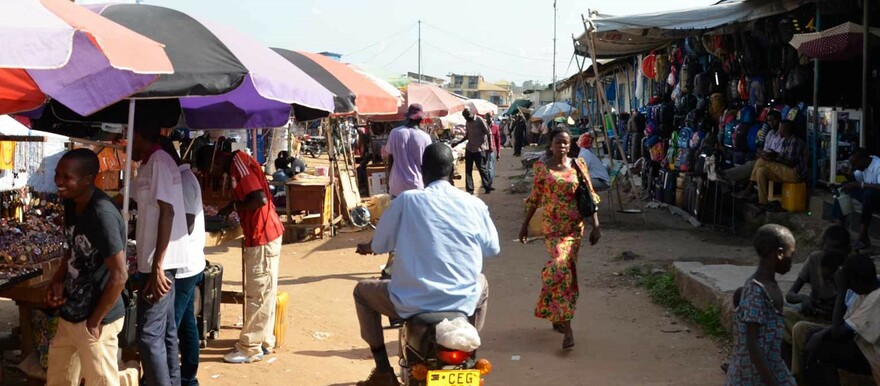Commercial activity in Juba city markets has declined, primarily due to a currency shortage among citizens.
Radio Tamazuj investigated the market situation on Tuesday morning to understand the reasons behind the slowdown in business within the capital.
Achol Dhieu, a resident of Juba, highlighted the exorbitant prices of goods in the market, coinciding with a financial crisis among citizens due to delayed salary payments.
She emphasized that many women struggle to afford clothing for their children, underscoring the high costs of clothes and sweets.
“We are happy to celebrate Christmas, but the challenge is that many people are broke. All the commodities and stuff needed during Christmas are costly, but we hope next year will be better than this year,” said Achol.
Imad Al-Tijani, a Sudanese trader working in a clothing store, voiced dissatisfaction with the poor commercial activity, citing a lack of money in citizens’ hands. He observed that this year’s Christmas season is less favourable compared to last year.
Al Tijani conveyed Christmas wishes to the people of South Sudan and Sudan, expressing a desire for peace in Sudan. “Reflecting on the destruction witnessed across several cities in our beloved Sudan, we can only hope for peace to prevail,” he said.
“We don’t see a lot of activities happening in the market in Juba due to the lack of money. The people of South Sudan are suffering economically. But we hope all will be fine in the future, so let us hope for the best,” he added.
The World Bank’s latest South Sudan Economic Monitor (SSEM) reveals that South Sudan’s economy experienced stagnation in fiscal year 2023 (FY23) due to the lingering impacts of flooding on oil production.
The SSEM report emphasizes the importance of investing in human capital development as a foundation for economic growth, particularly in light of the low literacy rate in South Sudan.
To contact Radio Tamazuj with comments, news tips or information, write to radiotamazuj@gmail.com or use the contact form.




